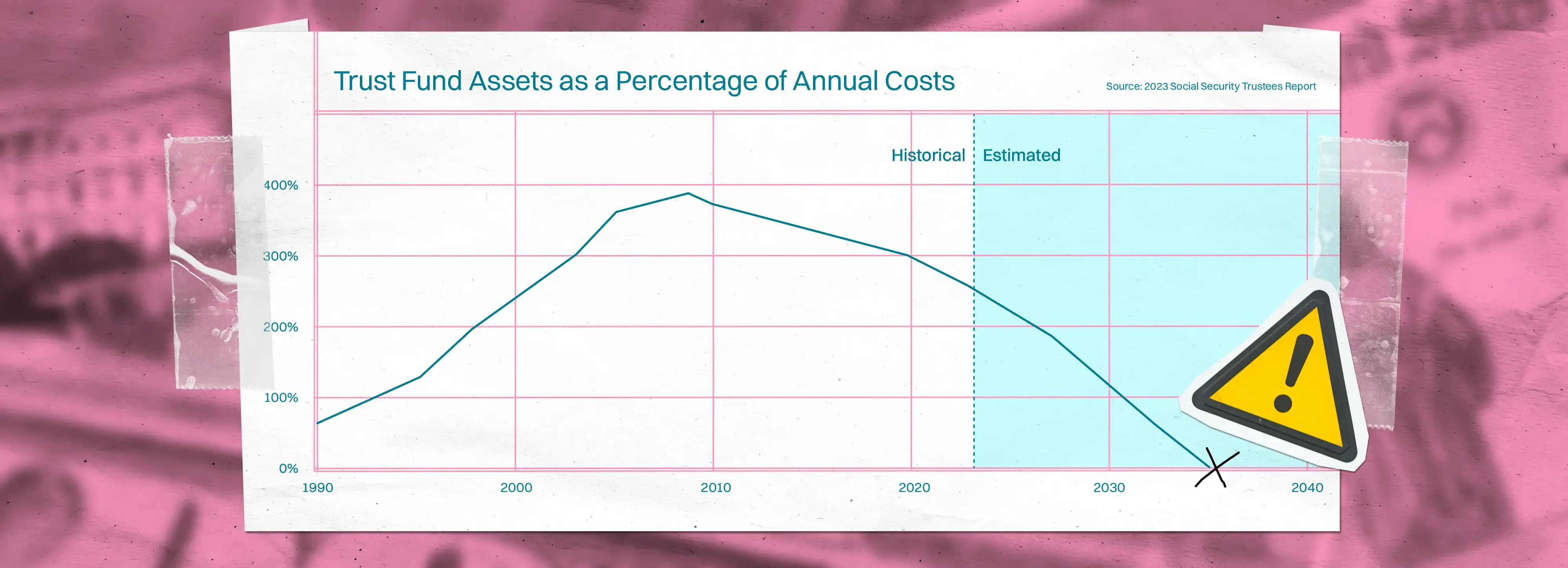What It Means for You
In 2033, Social Security’s trust fund will officially reach insolvency. Without a supply of surplus money to plug the hole in revenue, there won’t be enough money to cover the cost of benefits.

BENEFIT CUTS
When that happens, federal law says the Social Security Administration must cut benefits for all current retirees by the percentage of the shortfall in revenue.
That’s a complicated way of saying that, based on current projections, benefit checks for all retirees will be cut by 21 percent, starting in 2033.


Impact: Average-Income Earners
Let’s use some real numbers to put the benefit cut in perspective.
Imagine a retiree who worked for 40 years and retired in 2033 at full-retirement age. This retiree made an average of around $75,948 during their top 35 years of earnings. We'll call her Donna.
Under Social Security’s current benefit calculation, Donna's annual benefit should be $30,835.
But if we don’t shore up Social Security’s solvency, its trust fund will run out of money in 2033.
The result? Donna's annual benefit will be cut by 21 percent - from $30,385 a year to $24,360.
When you’re in retirement and on a fixed income, getting less money than you were expecting is never a good thing. You're watching every penny and spending wisely, and a benefit cut will hurt.
Our hope is that someone with Donna's earnings history also had access to a retirement account and extra money to contribute to it. These savings could help blunt the impact of a reduction in the monthly benefit she receives from Social Security.
Impact: LOW-INCOME EARNERS
Now let’s look at another retiree. We'll call him Charlie.
Charlie also worked for 40 years and began collecting Social Security in 2033, at full-retirement age. But during his working years, Charlie's salary was much lower. In fact, most years he was living just above the poverty line. During his highest 35 years of earnings, he earned an average of $18,984.
With that income history, it's unlikely Charlie has much saved for retirement. But, he's slated to collect $14,257 a year from Social Security.
If we don’t shore up Social Security’s solvency, Charlie's benefit will also be cut by 21 percent - to $11,263.
For a senior citizen on a fixed income with little to no retirement savings, a benefit cut like that is devastating.
To put it in perspective, U.S. News and World Report ranked Harrisburg, Pennsylvania, as the best place to retire in 2024. After a 21 percent benefit cut, Charlie's monthly Social Security check wouldn't cover his monthly rent for an apartment there (median cost: $1,019) - never mind prescription drugs, groceries, and utilities.



.svg)

